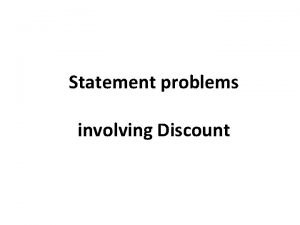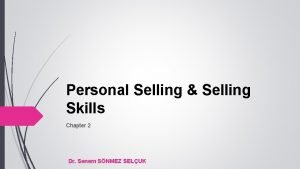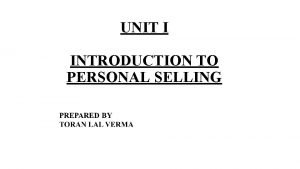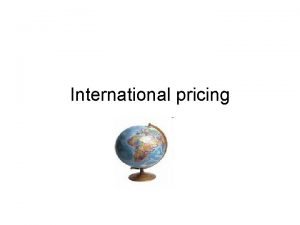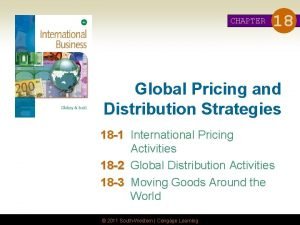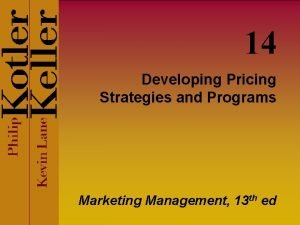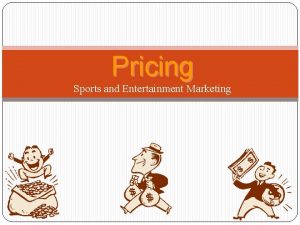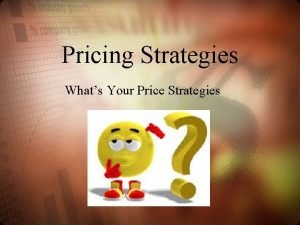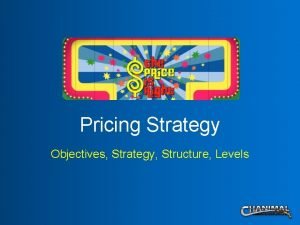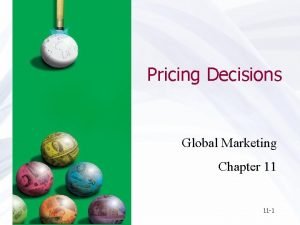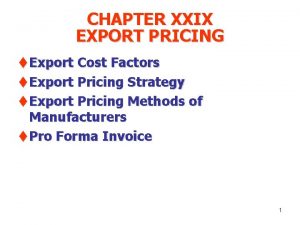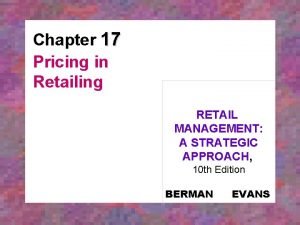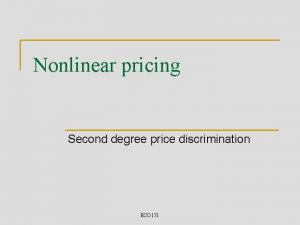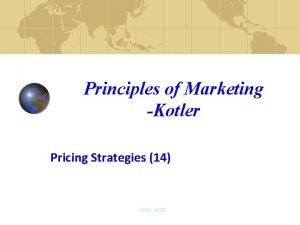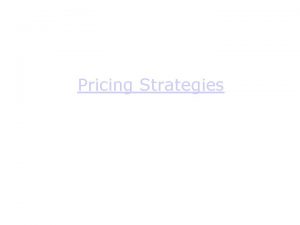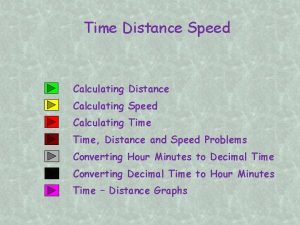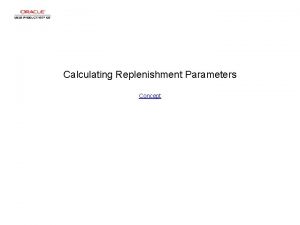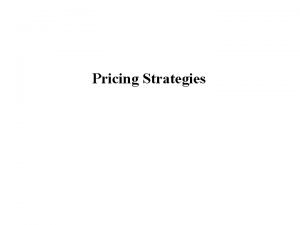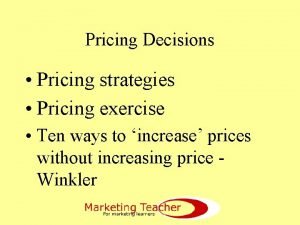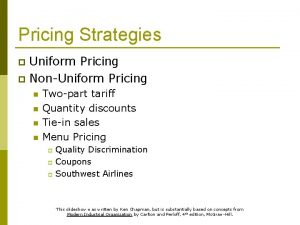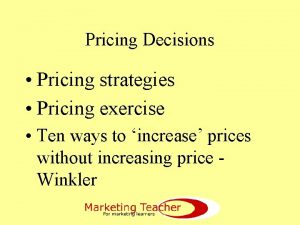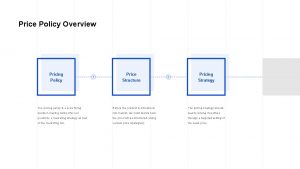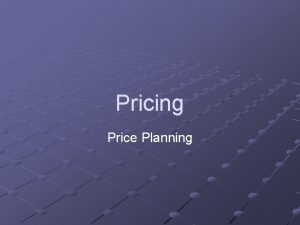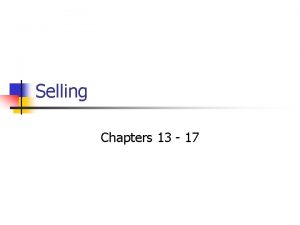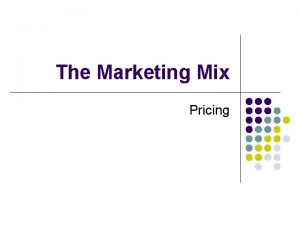Pricing Strategies Price Calculating the selling price for
















- Slides: 16

Pricing Strategies

Price • Calculating the selling price for the product/service calls for the business person to don two hats! That of marketer, and that of accountant. Keep in mind that the selling price should be what the customer will be prepared to pay! The accountant knows that the price must of course cover all costs, and give a profit (the reason business operate).

Price vs. Nonprice A firms percentage of the total sales Volume generated by all the competitors in a market.

• Is a calculation that is used to determine the relative profitability of a product. A company may price its products to achieve a certain return on investment. Formula is: Return-Investment divided by Investment • Assume your company sells trash cans for $8 each. Your cost to make and market the trash cans is $6. 50 per unit. Profit is money earned by a business minus costs and expenses. • $8 - $6. 50 = $1. 50 / $6. 50 =. 23 This means that your rate of return on investment is 23 percent.

Factors affecting your pricing strategy include: • Supply and demand • Your costs and expenses • Competition

3 Basic Pricing Strategies

Cost Oriented • Cost Oriented Pricing: price is determined by adding a profit element on top of the cost of making the product.

• Markup is the difference between the price of an item and its cost. It is generally expressed as a percentage. The markup in dollars is added to the cost to determine the price: Cost + markup = Price $25 + $15 = $40. 00 Example: An oak desk, which sells for $251. 95 is marked up $108. 00. What is the cost of the desk to the shop owner?

Practice Markup Pricing • A computer software retailer used a markup rate of 40%. Find the selling price of a computer game that cost the retailer $25. • A gold shop pays its wholesaler $40 for a certain club, and then sells it to a golfer for $75. What is the markup rate?

• Marketers who use demand-oriented pricing attempt to determine what present customers are willing to pay for given goods and services. . How much value does the customer place on the product? Price is determined by demand

1. Price above, price in line, or price under the competition? 2. no relation to cost of the product or supply and demand 3. prices based solely on competitors’ price competitive bid pricing - Price based off the competition Ex: Competing gas stations going-rate pricing - what every one else is doing, usually set by the firm with largest market share. Ex. Airlines

Skimming Pricing Penetration Pricing

Skimming Pricing • a pricing policy that sets a very high price for a new product • As the demand of the first customers is satisfied, the firm lowers the price to attract another, more price-sensitive segment.

Penetration Pricing • Opposite of skimming • setting a relatively low initial entry price, usually lower than the intended established price, to attract new customers. The strategy aims to encourage customers to switch to the new product because of the lower price.

Refers to techniques that create an illusion for customers or that makes shopping easier for them. Promotional Pricing Technique involves setting prices that end in either odd or even numbers Suggestive bargain Packages. 3 for. 99 Bundle Practice of setting higherthan-average Prices to suggest status to the consumer. Combining several products and offering the bundle at a reduced price On sale pricing

Involves the seller’s offering reductions from the usual price. Discounts are offered to buyers to encourage them to pay their bills quicker! Offered to buyers for placing large orders. Offered to buyers to purchase products in advance.
 Marked price-selling price=
Marked price-selling price= Newtons classification of selling types
Newtons classification of selling types Personal selling situations
Personal selling situations Kilala rin sa katawagang maximum price policy
Kilala rin sa katawagang maximum price policy International pricing strategies
International pricing strategies Global pricing and distribution strategies
Global pricing and distribution strategies Developing pricing strategies and programs
Developing pricing strategies and programs Entertainment pricing strategies
Entertainment pricing strategies Kvi pricing strategy
Kvi pricing strategy Product mix pricing strategies definition
Product mix pricing strategies definition Pricing strategies in marketing
Pricing strategies in marketing Global pricing objectives and strategies
Global pricing objectives and strategies Export pricing methods
Export pricing methods Pricing in retailing
Pricing in retailing Nonlinear pricing example
Nonlinear pricing example Kotler pricing strategy
Kotler pricing strategy Pricing strategies definition
Pricing strategies definition
